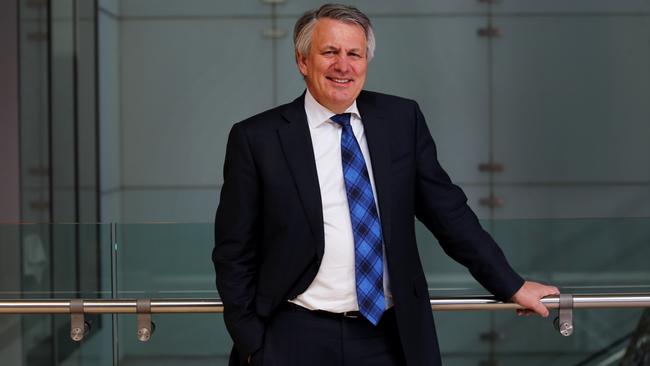Shell takes aims at the electricity mass market
Could Australia’s big three energy retailers become the big four? Shell thinks so.

Could Australia’s big three energy retailers become the big four? Shell thinks so.
After a decade of heavy investment cementing its role as one of Australia’s top LNG producers, the Anglo-Dutch company is plotting an assault on the domestic retail energy market led by AGL Energy, Origin Energy and EnergyAustralia.
While Shell’s earnings remain dominated by oil and gas, it expects to gradually switch the focus of its investment dollars to lower-carbon generation to reflect its prediction that the energy system will rely much more on electricity for its supplies.
Australia has been identified as one of six target markets where Shell will look to create a fully integrated electricity supply business with the potential to scoop up a “mass market” customer base through dealmaking.
“We will look at Australia as a power market and as a market of interest,” Shell chief executive Ben van Beurden said in a Sydney briefing this week during a rare trip to Australia. “We have reasonably strong ambitions to grow that up into a full-blown fourth leg of the company.”
While any big move by Shell may take years to play out in Australia, its flagged push into the highly contested retail power sector is being closely watched by the big three, which dominate at a customer and a generation level.
AGL, Origin and EnergyAustralia hold large retail market shares in many states and control more than 60 per cent of capacity in NSW, Victoria and South Australia against a backdrop of high power prices and, at times, tight generation in the local power grid.
Shell will target the development of an integrated business, according to the company’s chief.
“We’re not just going to be an asset developer, we’re not just going to be a power trader, we’re not just going to be a company that owns a number of customers but we will buy our power on the open market,” Mr van Beurden said. “We may be doing all of that but in the end we need to have the ability to play in an integrated way across the entire value chain.”
The move represents a sizeable change for a company that relies on traditional oil, gas and petrochemical assets to drive its earnings, not least from an investment perspective. Shell says its power business will achieve equity returns of 8-12 per cent, compared with 12-15 per cent for its legacy oil and gas business.
Shell has already started to make inroads in Britain after buying household energy and broadband supplier First Utility in late 2017. It aims to challenge the “big six” in that market.
It has also been pushing into renewables through a deal this year to acquire German battery maker Sonnen, which holds a market position in Australia.
Australia is a big part of Shell’s global goal, but Mr van Beurden said it would take time to roll out its plans locally.
“We are in the ‘assembling the building blocks’ mode before we can start talking about an integrated business that we can grow organically,” he said. “Still, mergers and acquisitions in a much broader sense needs to be part of our power story. You cannot start everything from zero completely organically and grow your way to the point where you need to be.”
Credit Suisse agrees that Shell will take its time to mould a significant power business in Australia. “Australia features materially in Shell’s global gas portfolio, and we can expect Australia may similarly feature prominently in Shell’s power ambitions in the future,” Credit Suisse analyst Saul Kavonic said.
“Establishing an Australian power position of scale would likely require M&A, but near term it is more likely Shell will pursue more modest organic investments near existing asset footprints in Queensland and Western Australia to allow Shell to become more sophisticated in the Australian power sector before embarking on larger ambitions.”


To join the conversation, please log in. Don't have an account? Register
Join the conversation, you are commenting as Logout